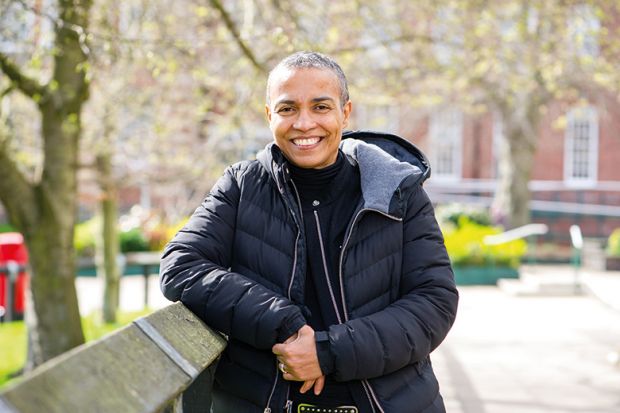Afro-Latin America and the Black Pacific: An Interview with Sherwin K. Bryant
Black Perspectives
2017-04-22
Yesenia Barragan, Postdoctoral Fellow in the Society of Fellows
Dartmouth College, Hanover, New Hampshire

This month I interviewed Sherwin K. Bryant about his work on the Black Pacific and Afro-Andes. Bryant is Associate Professor of African American Studies and History at Northwestern University and serves as the Director of the Center for African American History. As an historian of colonial Afro-Latin America and the Atlantic/Pacific Worlds, Bryant works at the intersections of cultural, legal, social history and political economy, with an emphasis upon Black life in the Kingdoms of New Granada and Quito (what is now modern Colombia and Ecuador). Dr. Bryant’s book, Rivers of Gold, Lives of Bondage: Governing through Slavery in Colonial Quito offers the first serious treatment in English of slavery and slave life in colonial Quito and challenges the narrower conceptualization of slavery as primarily an economic demand. He is currently working on two new book-length projects. The first charts the history of Black subjectivities along Colombia and Ecuador’s Pacific littoral while the second develops a history of slave life within the contraband slave routes that ran through Panama and New Granada before the era of free trade. Follow him on Twitter @sherwinkbryant.
Yesenia Barragan: As you explain in Rivers of Gold, the Kingdom of Quito had a relatively small enslaved population in comparison to the more familiar cases in the Atlantic world and has thus been overlooked in the historiography of slavery in the Americas. What insights can we gain by examining the history of colonial Afro-Quito?
Sherwin K. Bryant: Until the last two decades, the African diaspora to Spanish America received scant attention compared to the US, Brazil, and the British and French Caribbean. This was due in part to a scholarly reading of slavery through labor, the plantation complex, and an emphasis on numbers. These approaches caused previous scholars to underestimate the socio-political impact of slavery and Black life throughout much of Latin America.
Another enduring challenge to the study of Blackness in Latin America is found in the national myths and master narratives that diminish the importance of Black life, and those that deny and devalue the scale of Black populations and the extent of their on-going persecution. Rather than account for the full scope of Black life, these nations have preferred narratives of mestizaje, or race mixture, marginalizing Blacks and their contributions to the nation. To some degree and for some time now, scholars colluded in this elision, privileging studies of slavery as an institution, or race mixture and social climbing. Consequently, the writing of Spanish America’s Black history was fraught, episodic, and belated relative to the flourishing studies on Indigenous populations and women since the advent of social history in the 1970s and 80s. Finally, a US-centric approach to African American history and the prominence of the Atlantic basin in diaspora studies contributed to these omissions…
Read the entire interview here.







